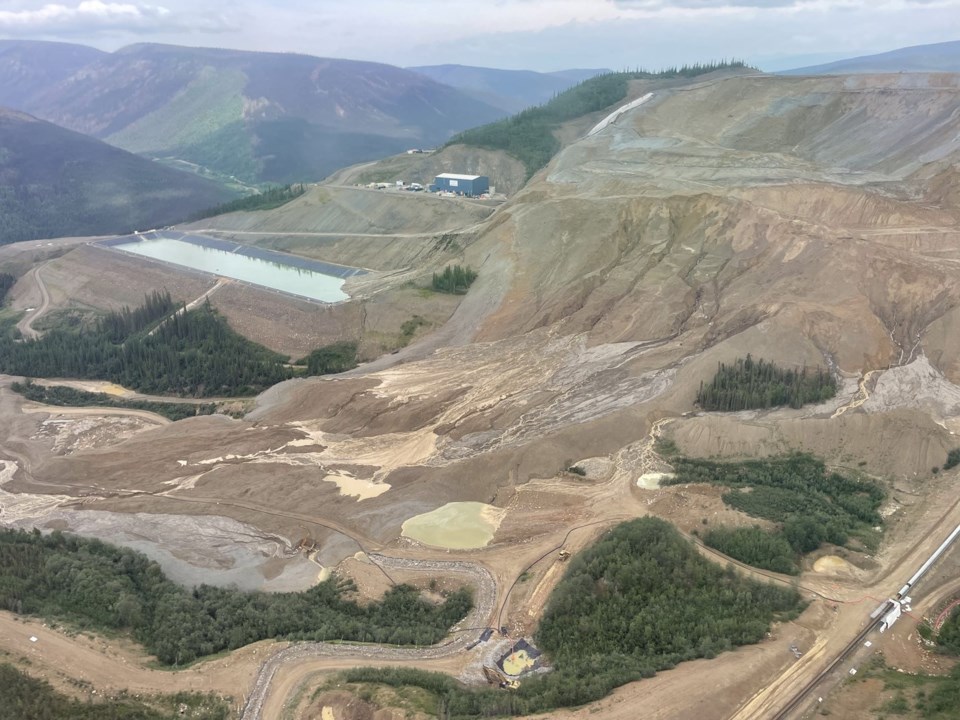WHITEHORSE — Officials say crews on the site of a major cyanide spill at a mine in central Yukon are facing an intense period of work over the next few months to install environmental protection before winter freeze-up arrives.
Victoria Gold, the owner of the Eagle Gold mine, 480 kilometres north of Whitehorse, was put into court-ordered receivership last week, after the mine's heap leach pad failed and about two million tonnes of cyanide-laced rock broke through containment in June.
Erin Dowd, the territory's manager of major mine licensing, told a briefing Friday that with the receivership in place, work is underway to install five groundwater monitoring wells.
She said other priorities include increasing water storage at the site and addressing the stability of the heap by building a berm as protection if the rock were to slide again.
"There's a lot of work that we'll have to do prior to freeze-up, and part of the work we're doing this week and next week is looking at what has to be winterized, what activities have to be prioritized, so that we can prepare ourselves for that," Dowd said.
Yukon Mines Minister John Streicker said the five wells that are currently –°¿∂ ”∆µ constructed are in what's considered a safe zone, further away from the spill.
He said the aim is to have additional wells just below the slide, but that the berm needs to be in place first so that those can be installed safely.
"Once we start to get that information, it'll help us to understand what we're up against and how long it's going to take to address," he said.
Energy Mines and Resources deputy minister Lauren Haney told reporters early estimates are that costs over the next few months in the "intense period" before freeze-up will be around $50 million and that the total cost of cleanup could be as much as $150 million.
The Yukon government has provided $15 million to the receiver, PricewaterhouseCoopers, to start the cleanup work, Haney said.
"Yukon government is funding the receivership, and what was critical to ensure that PwC and the lead environmental consultant could act immediately, was ensuring it had funds available to it," she said.
Haney said part of the receiver's job is to look at what assets Victoria Gold has that could be used to pay for the remediation work.
Following the collapse, water samples taken downstream from the site showed cyanide levels that Yukon officials said "significantly exceed" guidelines for aquatic life.
Tyler Williams, a water resource specialist with the government, said Friday that a pipe has been extended to divert water from upstream of the site around Dublin Gulch where contaminated groundwater is surfacing and pooling.
Williams said since the pipe was extended there has been a "significant positive impact" on the levels of cyanide found in Haggart Creek where high levels were first reported.
He said 80 per cent of samples collected from Haggart Creek from Aug. 9 to 15 did not detect WAD, or weak acid dissociable, cyanide
Streicker said terms of reference are –°¿∂ ”∆µ finalized for an independent review board that will looking into what caused the disaster, and the names of board members are expected to be announced next week.
— By Ashley Joannou in Vancouver
This report by The Canadian Press was first published Aug. 23, 2024
The Canadian Press




